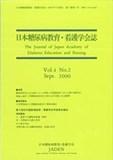Japanese
English
- 有料閲覧
- Abstract 文献概要
- 参考文献 Reference
- サイト内被引用 Cited by
糖尿病患者は,しばしば「わかっているけれどできない」と訴えることがある.この訴えは自己管理が「必要」と考えても「実行」できないという認知と行動の不一致であり,その背景には「嫌悪感」と「困難感」が存在するという考えから,この4側面からなる認知・行動不一致尺度を作成し,外来通院中の2型糖尿病患者を対象に調査を行った.回答が有効であった138名をHbA1c値により3群に分け,4側面の関連を比較した.これらの分析結果より,自己管理内容に対する「嫌悪感」,「困難感」,「実行」が互いに関連をもつ三角関係を形成し行動を方向づけることが示唆された.これらの関係は3群において違いがあり,HbA1c値が患者の心理構造を変化させ,自己管理行動に影響することが示唆された.血糖コントロール状況によって生じる患者心理状態のアセスメントに基づき,本研究で明らかになった三角関係を有効な方向に誘導することが効果的な指導につながると考えられる.
The illness of type 2 diabetes have a strong tendency of being influenced by patients' life style and surroundings, especially their food-intake manner and habits. Therefore, the patients need to restore their life style and habit-forming from the very basics of their living.
The psychological background of four aspects (cognition, liking, feeling of difficulty, and confidence in behavior) of contradicting diabetic patients complaint of“I know it, but I can not do it”was studied through a secondary analysis following the previous research. A questionnaire comprising 4 sub-scales was provided and given to 138 diabetic patients at Kawai Clinic, Tsukuba, Ibaraki, to identify the cognitive relationships of these 4 aspects over 3 convenience groups of diabetic patients according to their blood glucose control level as follows. (1) Group 1: good with HbA1c <7.0%, (2) Group 2: fair with HbA1c = 7.0 - 8.9%, and (3) Group 3: poor with HbA1c >8.9%.
Results show G3 demonstrated less positive thinking than G1 and there was little relationship between the patients“I know I need it”and “I can't do it”. However, a kind of triangular relationship was recognized in their self-care cognition concerning to their feeling of execution, distaste and difficulty.
It is suggested that the diabetic patients could be confident in their self-care cognition when positive triangular relationships among 3 psychological aspects of preferable feeling to self-care, physical easiness in behavior and confidence in keeping self-care are kept in balance and their good glucose control level is maintained and acknowledged.
Copyright © 2000, Japan Academy of Diabetes Education and Nursing. All rights reserved.


